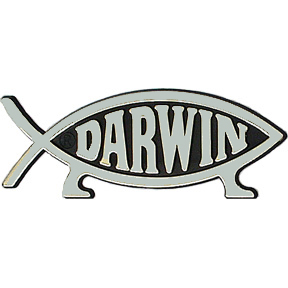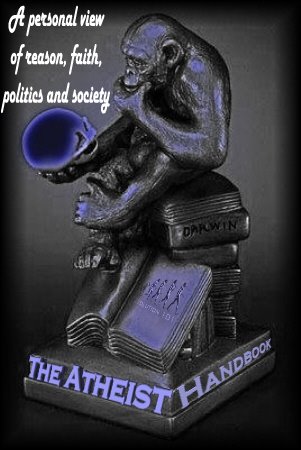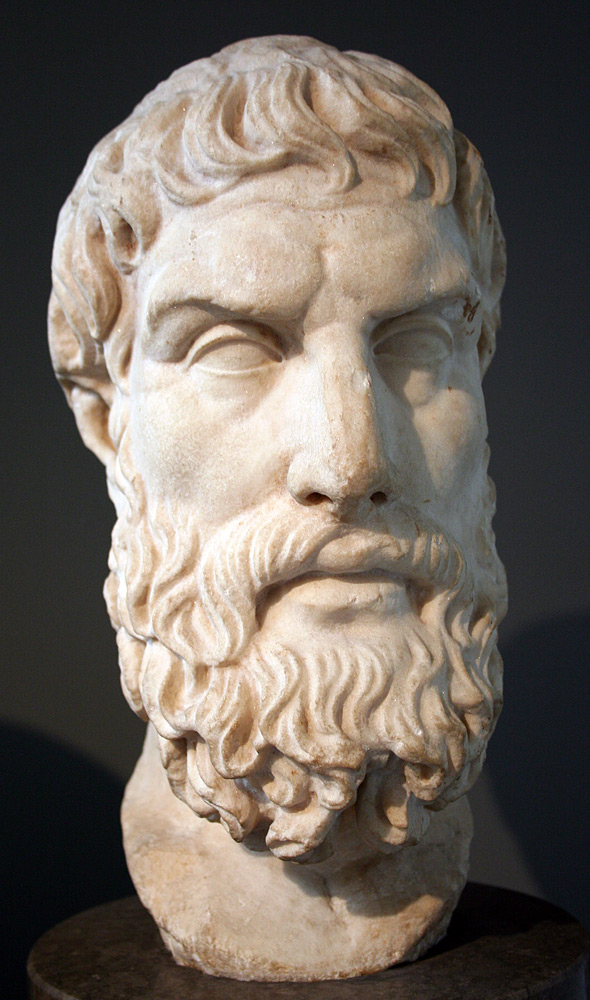
It was bound to happen sooner or later - the latest Pope decided to wade into the never ending creationism and evolution "debate."
I placed the word debate in quotes because the entire thing is a bit out of place. The objections to evolution, generally speaking, are not scientific but religious. The oxymoronic "creation science" - or as it is called when it dresses up in drag, "Intelligent Design'' - is not about science. It's about faith.
So the whole debate is a bit ridiculous. Evangelicals get up on a soap box talking about T-Rex's eating fruit in the Garden of Eden with Adam and Eve and expect that to carry some kind of scientific merit. It doesn't and can't, and as a result the debate mostly boils down to people yelling over each other's heads because they are not even speaking about the same thing really.
Of course, the great irony is this. Some Christians will say that their faith does not require proof. The Bible tells them to believe, so they believe. Period. After all, this is a religion that claims that believing without a shred of evidence is a virtue. (John 20:29) You are blessed if you believe, yet have not seen. In the same breath, however, they will struggle to prove the Bible is literally true. Hence the mind numbing "creation museums" that have popped up in the US, complete with displays showing how humans lived with dinosaurs. As Lewis Black says, "These people are nuts because they are essentially viewing the Flinstones as a documentary."
Luckily, however, most Christians are not of the dominionist school of fundamentalism. Sadly, they are mostly silent and let the fanatics rule the air waves.
Which brings me to the Pope. No, he is not a fanatic, but his latest missive sure smacks of the same kind of ignorance of science so often displayed by creationists or intelligent designers who either have no clue about science, or do and want to change the rules to allow for their religious beliefs to overcome evidence.
The Pope says: "the theory of evolution is not a complete, scientifically proven theory.” It's a sentence that makes no sense in scientific terms. No theory is "proof" in absolute terms, something I would have though a man of his learning would understand. All scientific theories are accepted provisionally as fact when the evidence is strong and the explanations sound. It is possible that someone might come along with a better theory of evolution....it happened to Newtonian physics so it could happen to evolution...that is how science works. But even if it did, that would not "prove" anything in the way the Pope is suggesting. He seems to think a scientific theory can achieve some kind of absolute truth...which is not what science does.
Also saying it is not "complete" makes little sense. A scientific theory is accepted precisely because it explains natural phenomena well and predicts certain outcomes. As far as scientific theories go, evolution is pretty complete. But the point is "complete" is also a misrepresentation of the scientific method. All theories are constantly open to modification in the light of new evidence. The door is NEVER closed on new information changing accepted scientific thinking. So "complete"makes almost no sense. Again, this is the Pope, not Jerry Falwell. I would have expected better.
The Pope went on to say that evolution could not be proven because scientists cannot study "10,000 generations' in the lab, a reference to the length of time that natural selection works with. True, we cannot test generations of animals or humans, but we can with bacteria and insects that live shorter and reproduce way faster. In the lab is exactly where scientists study those generations. Sorry, Pope, but you got it wrong again.
Of course, the greatest problem isn't with the Pope's apparent lack of basic scientific understanding. You'd think the guy would read up a bit before making these sorts of misinformed prounoucments. But it is with his overall attitude, one shared by his predecessor. That is, he says, science MUST leave the door open for God. That is to say, science should always allow room for God in scientific theory. The pope says evolution and religion do not conflict so long as scientists stay out of God's business.
Putting aside the fact the absurdities of a pope try to tell the world's scientific community what to do (you never seen the head of a large scientific body tell the pope how to interpret the Bible!) He is suggesting a religious framework for scientific work. "You can do all the science you want," he is basically saying. "So long as I approve based on my religious beliefs."
Balderdash. He should know better. Scientifically, there is no evidence to show the existence of God or gods. Scientifically there is no more or less reason to accept Thor is real as there is to accept that Allah is real. What people like Richard Dawkins are saying that scientifically speaking you have to be an agnostic, technically, about such things. HOWEVER, that you cannot DISPROVE, the existence of Athena or the Christian God, is NOT evidence they do exist.
Richard Dawkins likes to use Bertrand Russell's old analogy of the cosmic tea pot. The story goes that you could claim that a tea pot is in close orbit around the sun. It would be too small for our telescopes to see, so we could never disprove the teapot is there. Strictly speaking, we would have to be "teapot agnostics", as not one of us can say there is a tea pot in close orbit around the sun, but in reality we would all be teapot atheists. That is to say, while one cannot disprove it is there, the probability of of the tea pot existing is extraordinarily remote.
In short, the Pope is asking science not to draw a conclusion that might effect the belief in something that, so far as science is concerned, has no evidence with which to even suggest its existence.
Interesting, that a man so sure God exists appears to so worried that science might be able to show that God, in fact, doesn't.
Poor reasoning, no matter how you cut it.
















